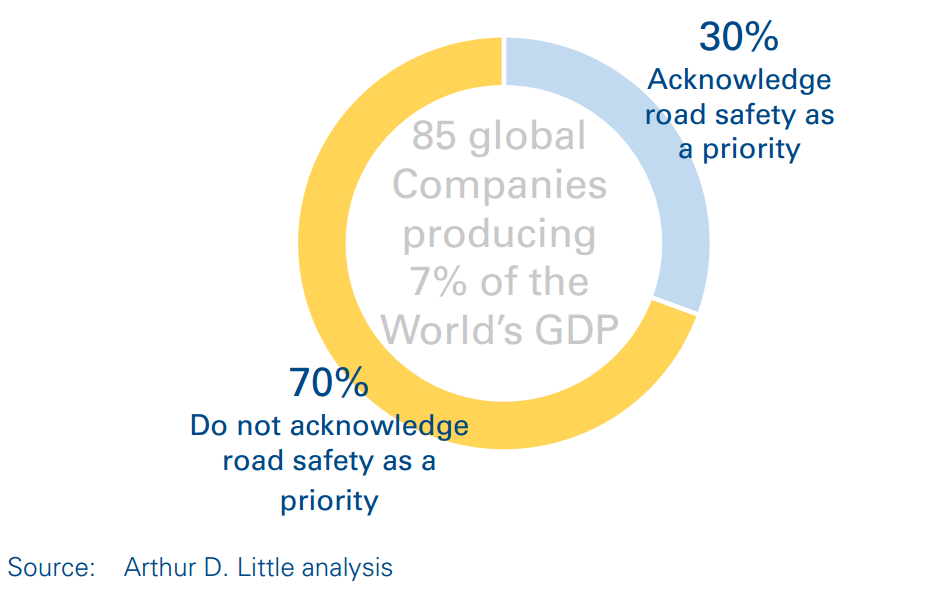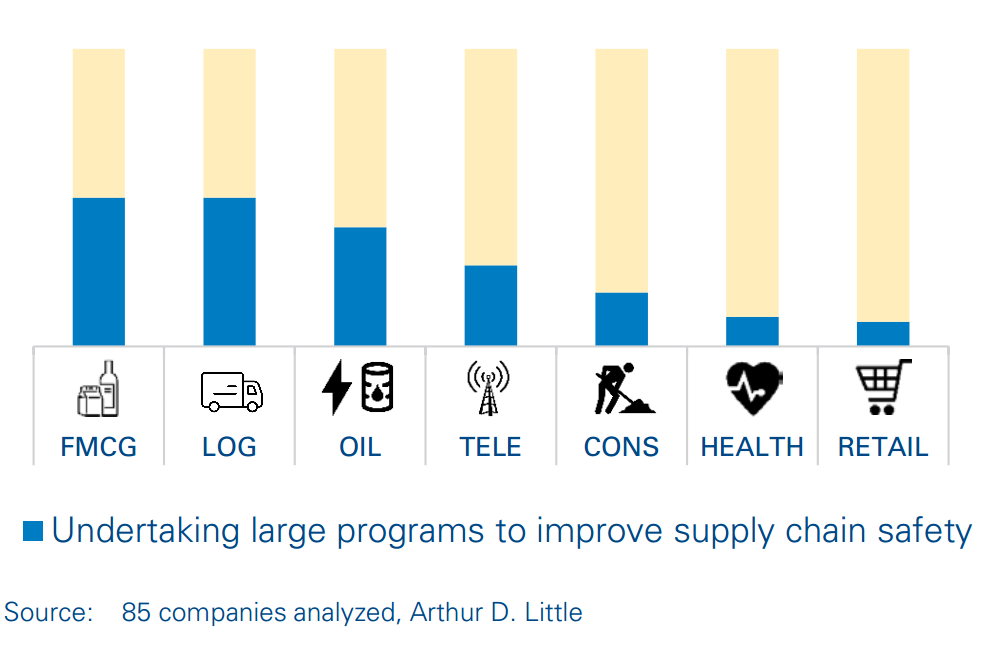
The corporate leadership agenda has become busier over the last decade as the world’s largest firms come under increasing scrutiny from a broader range of stakeholders. Beyond legal obligations, risks and opportunities for corporate reputation arise from matters such as carbon, water and community engagement. Many companies also engage in extensive road transportation, much of which comprises operations contracted out along the supply chain. With more than one-quarter of the 1.25 million deaths on the road each year attributable to work-related driving, the threat posed to sustainable business performance due to confining safety risk management to on-site activities is clear. As defensive driver training and driver-monitoring technologies become more mainstream, leading global companies are now taking the significant step of managing all off-site transportation safety risks throughout their own operations and across their supply chains. While such a step may increase the scope of harm to be addressed by an order of magnitude over that of on-site risks, reducing road transport-related fatalities and injuries throughout the supply chain can strengthen corporate reputation and deliver tangible benefits to business performance.
Road safety and corporate reputation
Companies have increased safety risk management efforts over the last few decades and significantly reduced harm to staff, contractors, customers and members of the public. However, most companies continue to limit safety risk management to on-site activities. Management of off-site safety risks for both owned operations and across the supply chain is typically weak; many companies do not systematically record or report off-site incidents.
Specifically, with respect to road safety, only a few leading global companies consider the issue a priority, despite 36% of all occupation-related deaths occurring on the road, outside of plant gates. Even fewer truly understand the safety risk profile across their supply chains. While legal obligations for managing safety vary globally and, in many cases, fall to the supply-chain players themselves, ever-increasing scrutiny exposes corporate reputation.
The game is changing
Road safety is rapidly joining the corporate leadership agenda. Leading companies are now launching group-wide programs to manage road-safety risks in distribution, in particular global companies operating in low- and middle-income countries with less than half of the world’s vehicles but 90% of fatal accidents. Our analysis of external reporting by 85 of the world’s largest companies across seven sectors notes that just onethird declare the matter to be a priority (Figure 1), and shows considerable variation in prioritizing supply-chain safety by sector (Figure 2).
Figure 1. Priority of road safety in external reporting by companies across seven sectors

We are not just limiting our focus to our own facilities; our aim is to reduce and, where possible, eliminate all risks of harm to our employees, contractors, visitors, customers and any other stakeholders affected by our business.
Figure 2. Engagement with supply-chain safety by sector

The highly visible campaigns of leading companies are throwing the spotlight onto those that are not proactive. Leading companies recognize that engaging in such emerging practices enhances their reputation in corporate leadership.
Such campaigns have been fueled by rapidly developing technologies such as vehicle telematics and on-board drivermonitoring cameras, enabling low-cost and effective support to safety management of fleets.
As corporate leaders, we can’t brush this issue under the carpet…

